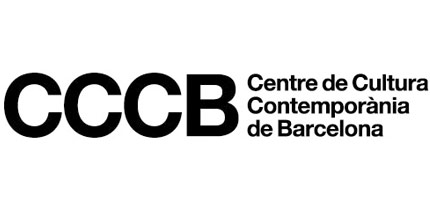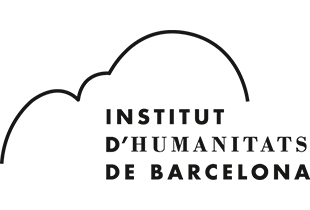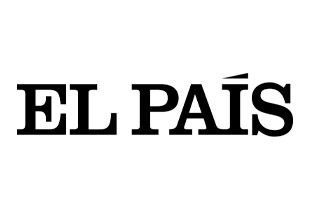Archipelago of exception
Sovereignties of extraterritoriality
Debate
Taking the metaphor of the archipelago as a starting point, we propose an interpretation of international geopolitics based on all the spaces that escape the traditional sovereignty of the nation-state and that seem to be governed by a permanent state of exception: concentration and refugee camps, military bases, war zones and even segregated urban districts.
The symposium will discuss a potentially new cartographic image of the world. It proposes the metaphor of the archipelago to help describe a geographical order that is no longer simply based on the model of the nation-state and continuous borders but is also fragmented into a multiplicity of extraterritorial zones. These are often 'spaces of legal exception' where sovereignty is in question. Case studies include humanitarian intervention zones, refugee and internment camps, military bases, urban ghettos and gated communities/settlements. The symposium will describe the different conditions of extraterritoriality, question their political and social implications and reflect upon the challenges that extraterritorial spaces pose to the modern concept of sovereignty and the nation state.
The symposium, which will bring together philosophers, sociologists, architects and activists from different parts of the world, is a follow-up of the series on "Borders" and "Urban Traumas" that the CCCB organised in 2004 as part of its long-term intellectual concern with the ways in which the notions of power and space intersect.
Thursday 10 November
12 noon, «Figures of Exception»
The state of exception is essentially based on a suspension of the juridical order, which makes it possible for an individual to be deprived of his or her condition as a citizen, or political being, so that his or her life is reduced to mere biological existence. This panel will analyse the concept from its origins through to its relevance in today's world, taking as an example the situation of the war-against-terror detainees in the Guantánamo military base.
Introduction:
Josep Ramoneda, Director of the CCCB.
Eyal Weizman, architect, Director of the Centre for Research Architecture, Goldsmith College,University of London.
Speakers:
Giorgio Agamben, Professor of Aesthetics, Faculty of Arts and Design, University IUAV of Venice
«State of Exception as a Norm»
Tariq Ali, writer and editor of the New Left Review.
«Guantánamo and the American Military Bases»
4pm. «The Architecture of Extraterritoriality»
The absence of law was traditionally associated with a vast undefined territory that was beyond the pale of civilisation. In modern times, the concentration camp inaugurated a new period in which the state of exception came to exist in an enclosed space with a precise location, within the borders of the nationstate. These spaces of exception have diversified over time, taking new forms and shaping an archipelago of extraterritorial sovereign spaces. The concern of this panel is to define what exactly these enclaves are and to understand them as territorial and architectural phenomena.
Chair: Lluís Ortega, architect.
Speakers:
Eyal Weizman, architect, Director of the Centre for Research Architecture, Goldsmith College,
University of London.
«Non-Contiguous Politics»
Keller Easterling, architect, Professor at the Yale School of Architecture.
«Enduring Innocence»
Teddy Cruz, architect.
«San Diego/Tijuana: Border Urbanisms, Relational Architectures»
Eyal Sivan, filmmaker, producer and essayist.
«Deportees and Refugees Camps, a Permanent "Temporary Solution"»
Laura Kurgan, professor at Columbia University Graduate School of Architecture.
«Spaces of Incarceration»
Friday 11 November
10 am. «Spaces of Exception: Military Strategies and Humanitarian Bubble»
The city, which is born as the space par excellence of law and civilisation, can also become an enclave of exception. From Jenin or Baghdad through to New York or Madrid, urban space can become not just a battlefield but also an instrument in today's conflicts. Military strategies are increasingly aimed at taking control of urban life and even destroying it. Then there is the humanitarian intervention, which, in attempting to alleviate the effects of conflicts, can contribute towards reinforcing the state of exception.
Chair: Eyal Weizman, architect, Director of the Centre for Research Architecture, Goldsmith College,University of London.
Speakers:
Shimon Naveh, Director of the Operational Theory Research Institute, National Defence College, Israel.
«Fighting the Urban Enclave»
Stephen Graham, Professor of Urban Geography, University of Durham.
«Technologies of Exception»
Thomas Keenan, Professor of Comparative Literature and Director of the Human Rights Project, Bard College, New York.
«The Humanitarian Bubble»
4pm. Session 4: «Life at Stake»
In the state of exception, politics becomes essentially "biopolitics", where control over the biological life of a population is the aim of the sovereign power. The biopolitical model, which initially pertained to spaces of exception, is evermore present in states that are increasingly concerned with control and security. In its extreme form, it is imposed on millions of immigrants and refugees around the world, who, deprived of any juridical recognition, are the object of the politics of exception.
Chair: Judit Carrera, Head of the Academic Program, CCCB.
Speakers:
José Luis Pardo, Professor of Philosophy, Universidad Complutense de Madrid
«Biopolitics: Life at Stake»
Rafael Vila-Sanjuán, general director of Médicos Sin Fronteras
«The Southern Border: Immigration and Violence at Europe's Door»
Anselm Franke, Exhibitions Director, Kunst-Werke, Berlin
«Design Solutions for the Social Fabric: Sovereignty and the Imaginary»
7pm. Closing session: «Archipelago of Exception»
The cartography that describes this archipelago of state-of-exception extraterritorial spaces, leads us to reflect upon the scope of the sovereignty of the traditional State and also upon the nature of power, the validity of political rights and the value of human life in an increasingly interdependent world.
Chair: Josep Ramoneda, Director of the CCCB.
Speaker: Zygmunt Bauman, Emeritus Professor of Sociology, University of Leeds.
Respondent: Giorgio Agamben, Professor of Aesthetics, Faculty of Arts and Design, University IUAV of Venice.
Presenters: Josep Ramoneda, Eyal Weizman, Lluís Ortega, Judit Carrera
Participants: Giorgio Agamben, Tariq Ali, Eyal Weizman, Keller Easterling, Teddy Cruz, Eyal Sivan, Laura Kurgan, Shimon Naveh, Stephen Graham, Thomas Keenan, Rafael Vilasanjuan, Anselm Franke, Zygmunt Bauman, José Luis Pardo







